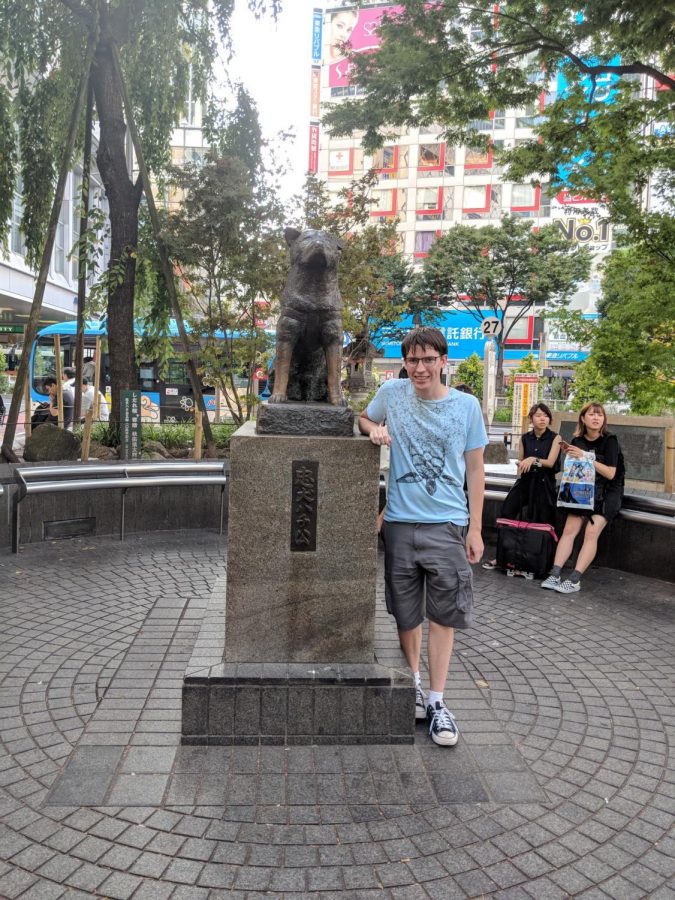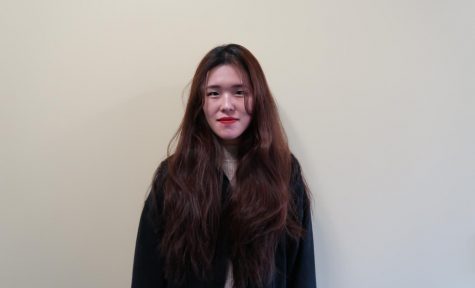Study abroad may be key for growth
Junior Ryan Wasil poses with a Hachiko dog statue at Shibuya Train Station in Japan, where he studied abroad this summer.
October 17, 2018
Going to another country can be both exciting and intimidating–exciting because of the new adventures and different cultures, intimidating because of the costs and foreign environments.
According to a Jan. 11 New York Post article, 40 percent of the American population has never left the country, not because they lack an ambition to travel, finance is the big problem for many.
In order to give students a chance to step out of their comfort zone and experience different cultures, Pitt Panther program has provided the Pitt-Johnstown students with a variety of different programs targeting students studying in different areas.
International Services and Program Coordinator Renee Brown, said that there are over 300 destinations for students to choose from.
Although the deadline for the Panther program in the spring semester has passed, Pitt-Johnstown students can apply for spring break, summer 2019, and fall 2019 programs.“
“Regarding studying abroad this upcoming summer, applications are due Jan 20. Once a student picks out the program that he/she is interested in, they are able to see the deadline date for that specific program. As for the other Pitt Recognized programs, the dates may differ. So it is the student’s responsibility to be mindful of those deadline dates,” she said.
According to Brown, the number of students applying for study abroad programs has increased this year.
“In comparison to last year, we had 19 students for the 2018 semester, whereas this year we have 17 more students.
“As of now, we are looking at 36 students who applied to study abroad for fall 2018, spring 2019, spring break 2019, and summer 2019. However, I see that number increasing a lot more due to the conversations I’ve had with countless students.
For those concerned about the costs of studying abroad, Brown said that students shouldn’t be too worried about it.
“Studying abroad here at the Pitt-Johnstown can be very affordable.
“Usually if the students receive any grants, tuition waivers, or scholarships, (they) can be applied towards the study abroad program that they are interested in.
“Additionally, there are a multitude of scholarships out there for studying abroad. We have the Vira Heinz Scholarship, Benjamin Gilman International Scholarship, Fulbright U.S. Student Program, Critical Language Scholarship, and many more.
“For those students who are interested in the scholarships, I would recommend talking to (Tuangtip Noon Klinbubpa-Neff), located in 220 Biddle Hall.
“Also, I am working with a Pitt colleague to host the Passport Caravan for Johnstown. The (Council on International Educational Exchange) passport caravan would sponsor and pay the passport fee (approximately $145) for any student interested in studying abroad at Pitt-Johnstown. So there are resources out there to help with costs, it is just a matter the students asking for the information. One thing my mom always told me is that: ‘A closed mouth does not get fed.’”
For this year, Brown said, it seemed that the student-teaching in New Zealand is the most popular among the education major students.
One of the students who went to study abroad this summer is Ryan Wasil.
“I chose Japan because their culture and history fascinate me, I visited England before and wanted to try a country entirely different to give myself another perspective. It was also an opportunity to visit a lot of places I’ve only seen in the movies, TV shows, and video games I really enjoy.
“The experience was unlike anything else I have ever done, and I would highly suggest that anyone considering studying abroad should take the opportunity and do so.
“It was basically a life-changing experience, as well as wonderfully eye-opening because I could examine the differences between American culture more than what I could have done previously when I went to England.
“The classes I took over there were the study of Japanese culture, and religions in Japan which were both unique and interesting as they would not be something easily found at many schools here.
For raising student awareness and participation in the study-abroad programs, Brown said she is not doing anything in particular, but rather just talking to students.
“For me, I just talk to the students and student-athletes, whether they are in my class, study hall, practice, or wherever. A lot of times the students are random and I just spark a conversation.
“I ask them if they would be interested in leaving the U.S., learning a different culture, and building their resume while getting credit for it. Then I tell them that not many people are afforded this opportunity and that they need to take a step out of their comfort zone and explore the world because there is so much out there.
“Then if the students are a little hesitant or unsure, I tell them about our international students here at Pitt-Johnstown, and how they took a risk to leave their home and country to essentially study abroad.”
“My goals are to get at least 45 students to study abroad. I know that the goal may be a little high, but I have always been an ambitious dreamer, and if I set my mind out to doing something, I will do everything in my power to make sure it happens.
Brown said she felt that a study abroad experience would benefit students a lot, and that students need to be more open to different cultures and seeing a different side of the world.
“I feel as though this experience is once in a life time and it would help the students get out of their comfort zone and diversify them a little more. Yes, it would be scary at first for some – but once you are there and you are taking it one day at a time, you become accustom to some of the traditions and assimilate in a way. I believe that this study abroad experience will also help with the integration of our domestic and international students.
“I feel as though a lot of our domestic students would be more inclined to learn about other cultures, step outside their comfort zones, and be more open to other traditions. In turn, I feel as though our international students will be more susceptible to attending different programming outside of international services and branching out a little more. Aside from that, I think we are on the right track in making those goals become a reality–hopefully sooner than later.” Brown said.


